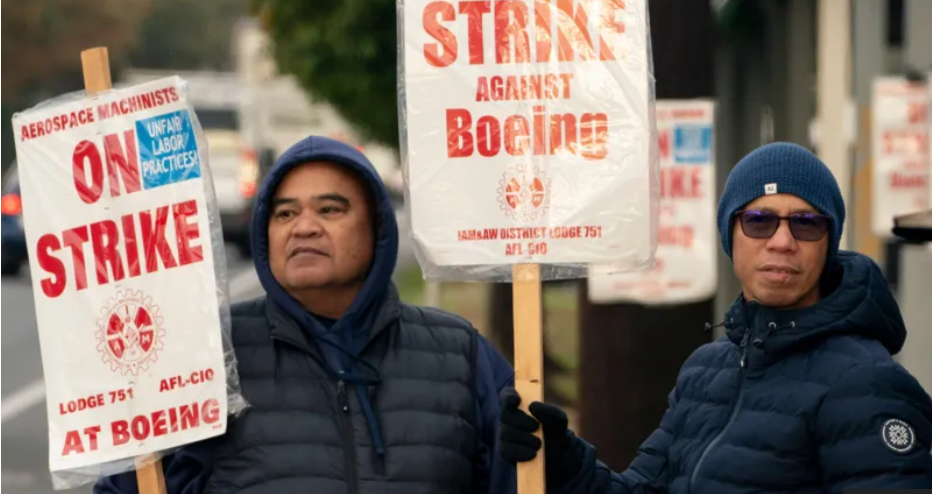Boeing raises pay offer in bid to end seven-week strike
Boeing’s striking workers are set to vote on a new offer from the company, which proposes a 38% pay increase over the next four years.
The International Association of Machinists and Aerospace Workers (IAM), representing over 30,000 striking members, has endorsed the offer and announced a ballot scheduled for Monday.
The strike, which began on September 13, has led to a sharp production slowdown, intensifying Boeing’s ongoing challenges.
Initially, the union had demanded a 40% pay increase, and members have rejected two previous offers, including the last proposal with a 35% raise.
The latest offer not only includes the pay increase but also a $12,000 bonus (£9,304) if an agreement is reached, up from the prior $7,000.
“It is time for our members to lock in these gains and confidently declare victory,” said an IAM post on social media. “We believe asking members to stay on strike longer wouldn’t be right, given the substantial progress we’ve made.”
Boeing stated that, under this offer, average annual pay would reach $119,309 over the next four years.
“We encourage all of our employees to review the improved offer and participate in the vote on Monday, November 4,” Boeing noted in a statement.
Additionally, the proposal includes updates to retirement plans. Boeing shares rose 2.7% in after-hours trading in New York following the announcement.
Boeing has been trying to end the strike and shore up its finances.
Last week, its commercial aircraft business reported operating losses of $4bn for the three months to the end of September.
The company also launched a share sale to raise more than $20bn earlier this week.
It came after warnings that a prolonged strike could lead to downgrades to Boeing’s credit rating, which would make it more expensive for it to borrow money.
The firm is also moving ahead with plans to lay off around 17,000 workers, with the first redundancy notices expected to be issued in mid-November.
The latest crisis at Boeing erupted in January with a dramatic mid-air blowout of a piece of one of its passenger planes.
Its space business also suffered a reputational hit after its Starliner vessel was forced to return to Earth without carrying astronauts.



